|
In a time of unparalleled prosperity, general economic and technological advancement and inter-connectedness, how is it that there are still so many people in need?
Today, rather than start at the top and look at notions of wealth distribution and inequality, I would like to unpack the notion of charity as it operates in our modern world. Charity; “the voluntary giving of help, typically in the form of money, to those in need.” “kindness and tolerance in judging others.” Charity is voluntary. It is related to our judgement of others. It requires an imbalance of resources, allowing for discretionary distribution of those resources along ‘charitable’ lines. It is possible, to be wholesale contributing to the suffering of others in your day to day life, your work, or your business while still being ‘charitable’. Therein lies the main problem. The paternal, hierarchical nature of modern conceptions of charity leave the door wide open for manipulation, misdirection, misunderstanding and worst of all, incomplete, inconsistent and inadequate outcomes for those in need. A kind of modern day, PR driven papal indulgence where we can transact to save our souls. If we replaced notions of ‘Charity’ with notions of ‘Justice’, how would that change the way that we made efforts towards improving equality of opportunity? Justice; “the quality of being fair and reasonable.” Could we ever consider it ‘just’ that we fail to pay living wages to people? Could it be considered ‘just’ to punish someone for a lack of guidance, education and resources? Could a ‘just’ society unevenly distribute the ways and means for people to advance to be the best of their abilities, hamstringing people who might otherwise grow to be outstanding, productive, contributing members of our communities? Could a ‘just’ society ever allow people to go hungry when there is food, go cold when there are enough roofs or remain uneducated in a time of unprecedented knowledge sharing capabilities? I am not advocating for a free-market, capitalist, neo-liberal ‘the market fixes everything’ approach as the alternative to charity. I am talking about changing the way we speak about our responsibility to others, to continue to move towards an understanding that everyone needs help at some point in their lives. A society that values justice, “the quality of being fair and reasonable.” would try and ensure that everyone who needs help, gets it, regardless of how and when they come to need it. It is time to move from a conversation that focuses on paternal transactions for ‘people in need’, a conversation where the emphasis is on the giver, not the receiver. To creating a conversation about the needs of ‘People’ in a just society. If you are ready to move from a transactional model of altruism to a transformational one, The Just Be Nice Project is the only organisation of it’s kind working to change the way people help people. Get in touch if you’d like to find out more, we’d love to hear from you. 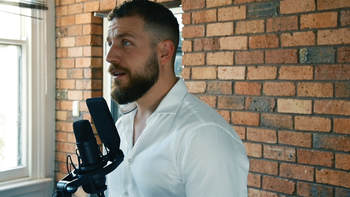
We've come a long way with encouraging men to speak up about their poor mental health and to let people know when they are struggling.
But what are we doing after that? The Just Be Nice Project is committed to not only improving the conversation around mental health, but also improving the access to the material support required to create environments where people can flourish. You can support our work by subscribing and becoming a JBN Legend Here, we can't do it without the support of our amazing partners and subscribers. Helping people feel good about doing good is an important element of engagement, but it cannot be the end-game to getting people involved in positive impact.
Is it easy to feel good about things that don't do that much good? Absolutely. Is that the best we can do? Absolutely not. The end game, and point of help, should always be about what happens for the person in need. Teaching people what effective looks like for people in need, rather than finding ways to make people feel good about attempts at help, is the real future of helping people, help people. Our work at the Just Be Nice Project is about harnessing the potential of every organisation and individual into effective impacts for those in need, while remaining engaging, relevant and worthwhile to those providing the help. There is a better way. Creating extraordinary positive change in the world, by helping people make ordinary positive change.
People in need with cancer.
People in need facing extreme prejudice. People in need of mixed abilities. People in need without employment or a chance of employment. People in need growing up in disadvantage. People in need who are suffering economic distress. People in need with mental health issues. People in need without a place to live. People in need who live overseas. People in need who have inadequate education. People in need who are sick. People in need who fear for their lives. People in need who look after people in need. People in need with empty bellies. People in need who have had a life of privilege and find themselves facing tough times. People in need who have never had the privilege of a resource rich environment. We see people in need. Rather than fight about what cause is the most important, and argue among causes, we believe in creating an eco-system that works to help people in need. It starts with an acknowledgement that people find themselves in need in many different ways, at many different times, for many different reasons. Rather than take the needs of any one community as more important than another, we consider the knowledge of one community about the most effective ways to help that particular community as important. Fighting for causes too often means causes fighting against causes. We are here to fight inefficiency. We are here to fight inequality. We are here to fight for people in need. We are not here to fight inequality with only a spreadsheet and a calculator, but we are also not here to fight inequality with only misguided good intentions and a short-lived peak in emotive interest. We are not here to do things the way that they have been done in the past, because we know that we can do better. We are here to fight alongside people who believe that we can do better. We are here to fight alongside people who are tired of seeing wasted money, time and good intentions. We are here to fight for those in need. We would love you to join that fight.
The notion of the feckless poor is a common narrative among conservatives the world over. The persistent insinuation is that people are poor or 'under-performing' because of a lack of morals. Poor because they don’t work hard. ‘There is opportunity everywhere’ the conservatives say, you simply have to take ownership of your life and pursue it, if you don't, there is no one to blame but yourself.
This week, after a series of circumstances and events that one could not describe as anything but farcical, dishonest and lacking character, Scott Morrison was installed as leader of the Liberal party and Prime Minister of Australia. Among the values espoused in his first press conference, the common call to arms for conservatives of, ‘if you have a go, you’ll get a go’ featured. If you have a go. The reality is, in action, there are plenty of people who ‘have a go’ and don’t ‘get a go’ in this country. The asylum seekers imprisoned on Manus Island, having a go, seeking asylum, as is their right. Is undertaking a treacherous journey to protect your life and that of your family not really having a go? People on the NDIS, leaving about half of the people with disabilities worse off than they were under previous schemes, despite the government spending twice as much. Are these people not having enough of a go? The 2.9 million Australians that live below the poverty line, including the 36% of them who rely on wages as their main source of income, are they not having a go? Should they simply, as Malcolm Turnbull put it “…seek to earn more”? Is the renewable energy sector, with it’s huge strides towards creating cheaper power than fossil fuel sources by 2020 not really having a go? Are students in under-performing schools not having a go? Hamstrung by funding cuts and a teaching profession that treats teachers so poorly that 50% of teachers leave the vocation within a few years of starting, are we sure that these students not having a go? We need to beware of claims of equality that aren’t matched by the relevant social and legislative supports - …in societies which claim to recognize individuals only as equals in right, the educational system and it’s modern nobility only contribute to disguise and legitimise in a more subtle way the arbitrariness of the distribution of power and privileges which perpetuates itself through the socially uneven allocation of school titles and degrees. – Pierre Bourdieu & Jean-Claude Passeron. If we are really serious about giving everyone a go, then we must be serious about improving equality of opportunity for everyone. Not demanding contributions upfront from the most vulnerable, but making it our job to help them get to a place where they are able to contribute. Regardless of our ability or circumstances, we are here to make a contribution, rather than take one; that in order to you to do better, you don't think someone else has to do worse – Scott Morrison The real test of the government will be to see how serious they are about building an environment that does, in fact, foster growth and opportunity for all, and not simply a chosen few. We will be watching closely.
http://www.abc.net.au/news/2018-05-01/third-of-ndis-participants-feel-no-better-off/9716282
https://www.acoss.org.au/poverty/ https://www.smh.com.au/education/why-up-to-half-of-all-australian-teachers-are-quitting-within-five-years-20170605-gwks31.html https://www.afr.com/news/transcript-of-new-prime-minister-scott-morrisons-first-press-conference-20180824-h14h1a https://www.forbes.com/sites/dominicdudley/2018/01/13/renewable-energy-cost-effective-fossil-fuels-2020/#36a259674ff2
Why start the Just Be Nice Project? What is it all about? Being nice seems like a great premise for a business, but what does it mean?
The answer is relatively simple, we started it because at the end of the day, the simplest way for people to start making positive change in the world is to Just Be Nice. Not only through grand gestures, when it suits them, but to everyone, as often as possible. Being nice is step one. Just be nice each day, wave when you’re let into traffic, smile and say thank you when you get your coffee, help your friends when they need a hand. Just Be Nice. If everyone was nice, all the time, the world would be a much better place to live. Consistency is more important than intensity. It should become habit, so if you remember the time that you were nice, you are probably not being that nice. Doing good however, is a slightly different proposition. Everyone can achieve the same level of being nice, because it’s about what you do. However, the truth is; not everyone can do the same amount of good. Doing good is about helping others. Doing good is less about what you do and more about what happens for the person getting help. In medical terms, being nice is the bedside manner. It is important, and it helps, but all the bedside manner in the world won’t cure a disease. Doing good is treating the illness, and moving people from sick, to well. Bedside manner, caring about those who are sick, and being nice, can be done by people with good intentions. People who want to hold hands and emotionally support people during tough times. Treatments however, require hundreds if not thousands of people contributing to research and development, billions in equipment, infrastructure, hospitals, research facilities, studies, medicines etc. Each time we treat or cure a disease, it’s because people have dedicated their lives and skills to the cause. In addition, the people who administer the treatments spend years at school and university to be able to treat these patients. The Doctors, nurses and support staff, are able to do more good as a result of their effort, training and support infrastructure. The Just Be Nice Project is about bringing the two together. Bringing together the best of the big hearts, the caring and emotional support that humans need so badly, as well as bringing together the best in infrastructure and expertise to deliver ‘cures’ and ‘treatments’ to the disadvantaged. To facilitate the necessary long-term research and results driven testing to find the best ways to deliver people an equality of opportunity. Unfortunately, it doesn’t just matter how much someone cares, you cannot ‘care’ someone better if you do not have the skills or resources to treat them. It also doesn’t work if you simply give someone a treatment, and not consider the fact that humans need more than some logistical boxes ticked to help them move from disadvantage to an equality of opportunity. Philosopher Bertrand Russell said, “The good life is one inspired by love, and guided by knowledge”. We agree. Without love we lack the impetus to care enough to acquire the knowledge for the good of others, but without the knowledge we are just bundles of misguided, ineffective intention. “The good life is one inspired by love, and guided by knowledge” B. Russell
If you want to be nice, it is simple. Show compassion, pay attention, be empathetic, be nice to everyone you can, including people doing it tough. If you want to do good, take the time working out the best way to do that. Starting by understanding what you really excel at, then speaking to us about what things you could possibly do that make sense for your skill set. At the JBNProject, each day we bring people and organisations together, using their skills to do good, not just be nice. It’s the long way, and it takes time, but all good solutions take time, infrastructure and support. Building long term sustainable programs, we determine best practice to comprehensively move people from a situation of disadvantage to an equality of opportunity.
Remember, it starts with being nice, as close to all the time as you can! Share, subscribe, or to find out more, get in touch with us today.
An EAP (Employee Assistance Program) is a service that employers can offer to employees (and sometimes their immediate family) to provide mental health support for issues that may arise in or out of the workplace for employees. Depending on the organisation, it may include access to a counsellor in person or over the phone. Typically there is a hotline available for staff members to call to speak to someone about any issues they may be having. These conversations are confidential, while the employers will know that the service has been used, they will not know who used it, or for what issue.
EAP's were created in the late 1930's to deal with alcoholism and have the value to staff, employers, mental health and productivity inside workplaces was soon made obvious. EAP's can be contacted to discuss issues inside and outside of the workplace. Things like Problems at work:
Any or all of these things can have an adverse impact on how you are feeling, the EAP's are a great place to go if you are unsure of where to take the first step in chatting to someone about issues you may be facing. For employers, EAP's are a great resource, team leader, managers or even work mates can refer each other to these services to talk with professionals about issues that might not be easily spoken about in the workplace. Happy and healthy staff always create a more functional and inspiring workplace, so the EAP's can be a part of a health and wellness framework that looks after the most important people in your business. As an employee, if you have access to a service like this, check to see whether it is available to your immediate family as well. You may wish to speak to an EAP if you need an ear, you may want to give your spouse or kids a chance to speak to someone anonymously and from the comfort of their phone. The EAP will work to identify the issues, help put a plan in place to deal with them and potentially provide ongoing support (depending on the cover that your employer has). Employee Assistance Programs are a great resource, and when we are upskilling workplaces on best practice for mental health outcomes, it is always fantastic to be able to refer people internally to their EAP while improving their inter-personal skills at the same time. Keep talking, Keep looking out for each other and as always, Just Be Nice. For more information or to have the JBNProject come and help your organisation to Just Be Nice, contact us HERE. *Photo by Taylor Grote on Unsplash
Everywhere we look, we are being asked to transact. Social media has become a wasteland of advertising, product placements and sponsored posts. To the left and to the right we are being sold solutions, avenues to avoid discomfort, things we can purchase to fulfil our dreams.
Transactions, everywhere. Online even seemingly social interactions are actually transactions. What you ‘like’, what you watch, the filters you use on your photos.. They’re all used to create profiles of you to target sellers to you and your interests, encouraging you to make quick purchasing decisions. Your interactions are transactions to be bought and sold between various agencies, platforms and businesses vying for your attention. It is little wonder then, that over time even altruism, selfless concern for the well-being of others, has become an area of our lives that is predominated by transactions. Work hard, buy things and while you’re at it, buy some good will. Buy some character credits. Buy a good feeling for yourself. Buy something that you can tell your friends you bought that isn’t just the newest bag or car. We don’t tend to call it buying when it comes to altruism, we call it donating, but it is effectively the same thing. Isn’t donating to worthy causes a good thing? Yes it is, and No, it isn’t. Here are a few reasons to explain… Firstly, donating to a good cause is a common selling point among non-profits and transactional altruists. Unfortunately donating to a good, or worthy cause, doesn’t have any relation to whether you are donating to a good or effective organisation or solution. Most non-profit organisations have the dubious distinction of receiving funding from a source other than the end user, unlike businesses. When you are getting paid by people who aren’t using or receiving your service, the function of fundraising moves from doing an awesome job of helping people, to, doing an awesome job of helping people feel like they’re helping people.
Marketers instead of practitioners. Campaigns that are focused on making people feel good before focusing on doing good. Short attention spans in the marketplace for understanding have created an environment where many people’s comprehension of disadvantage and helping people in need is lacking.
If we were to look at charitable donations as investments, we would be looking at two kinds of returns.
Not every non-profit operates in this way, in-fact in the education and healthcare spaces, where the end-user is more often responsible for funding, we find more time spent on studying efficacy and improving services than in other kinds of non-profit organisations. Instead of working to improve the populations’ holistic understanding of disadvantage, we are constantly sold sound bites of very visible disadvantage. Promotions and shows that focus on rough sleeping homelessness, 30 second “Stories” before anyone competes on anything, from X-Factor, Aus Idol to Australian Ninja Warrior. We are being told constantly that stories of disadvantage and inequality of opportunity can be understood with 30 seconds, a montage and some sad music. We are regularly being encouraged to pay attention to the very visible disadvantage that we can easily identify, without being encouraged to understand the pervasive invisible disadvantage that goes on around us every day. Accompanying each one of these bite sized samples of difficulty is a plea to do things that are either really easy, or things you probably want to do anyway, because they are easy sells. Click to donate, send in money, SMS to donate, run this fun run, go to this dinner, drink at this party or take a selfie and use this hashtag. All things that we would ordinarily do anyway, so popping a charitable spin on it encourages more transactions and allows you to combine what you would do with something you’d like to do. Now, at the Just Be Nice Project we don’t have a problem with these things being catalysts for change, but when the most common catalysts for change are transactional rather than based on real understanding, we are only deepening our inefficiencies and making it harder to really help people, help people. |
Just Be NiceA collection of articles relevant to pursuing the effective execution of altruism in the search for equality of opportunity. Archives
February 2020
Topics
All
|
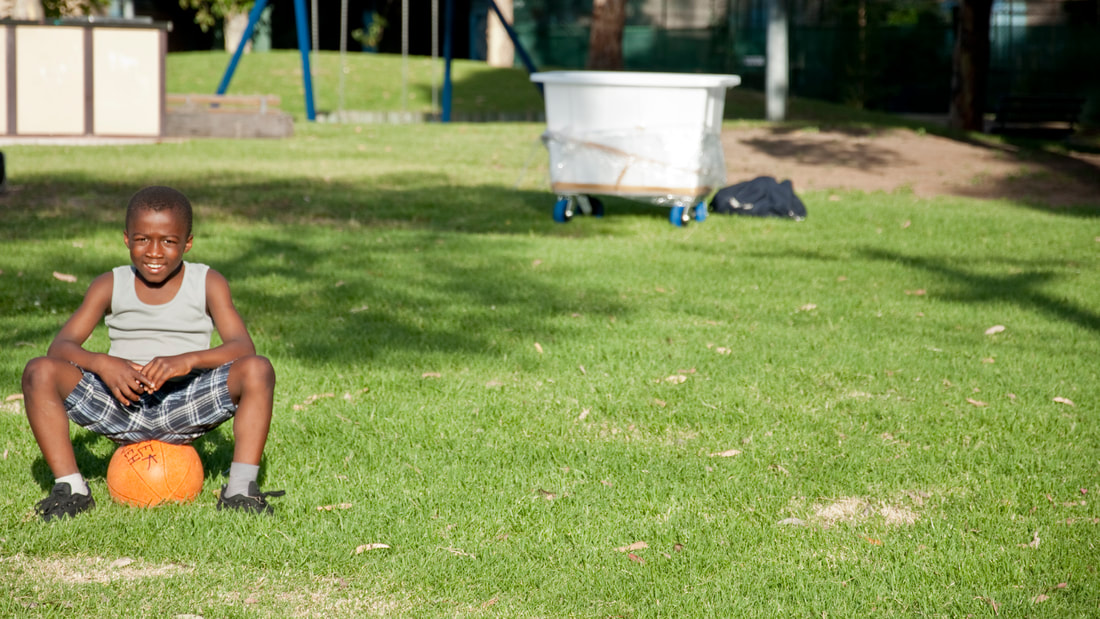
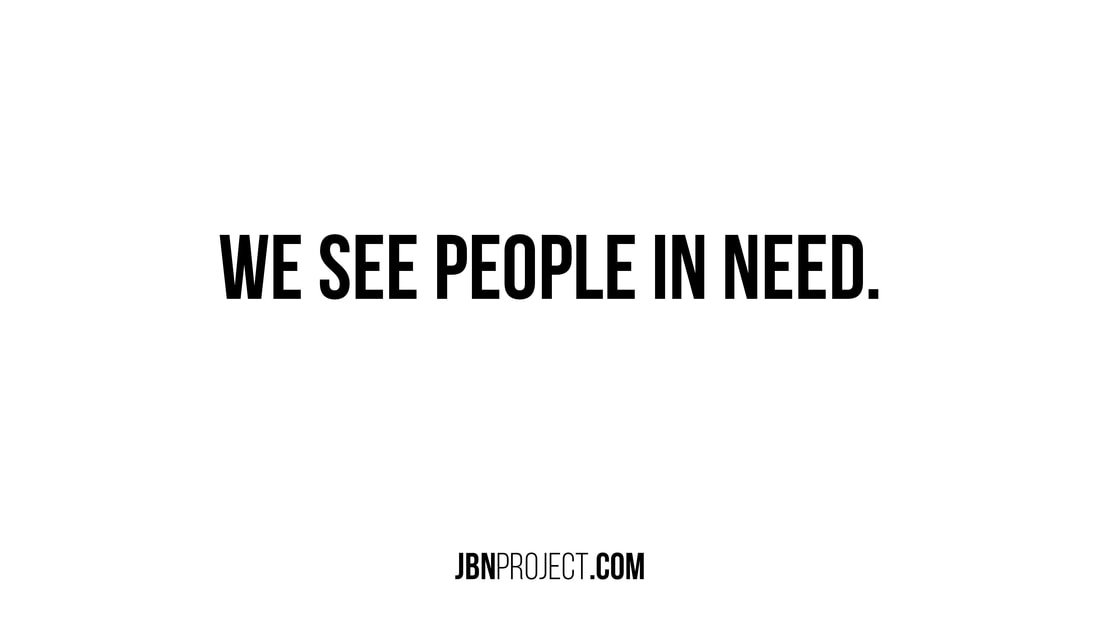
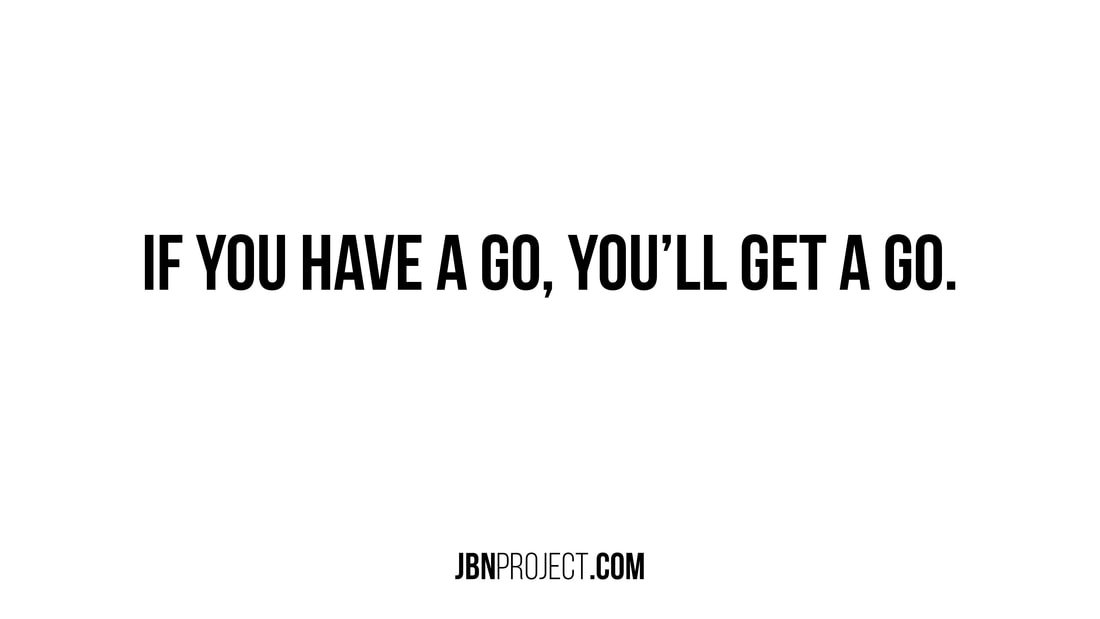
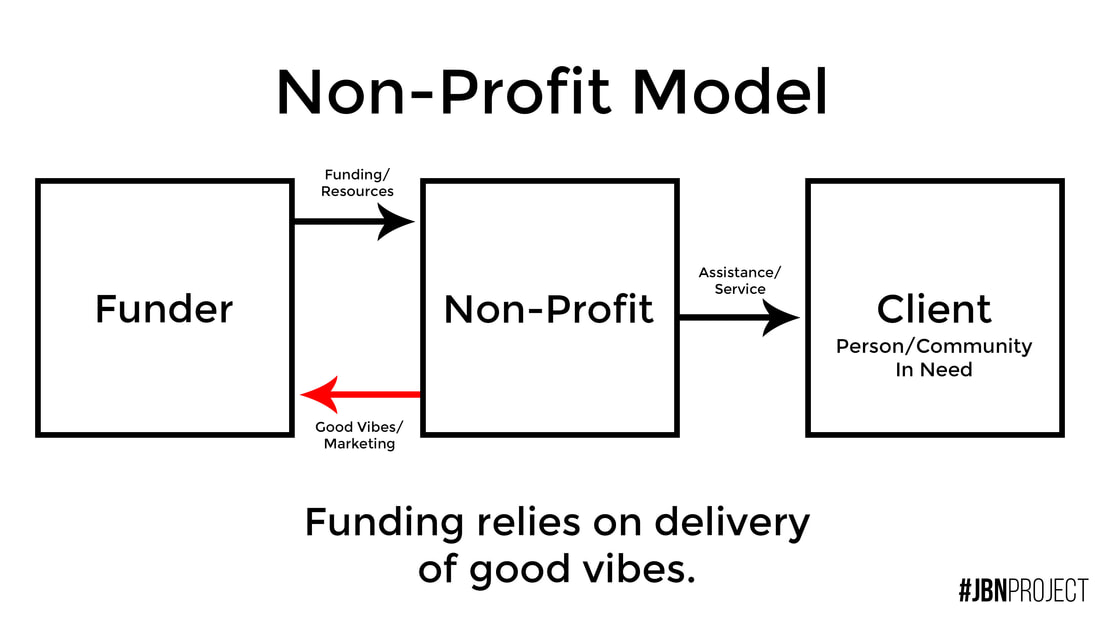
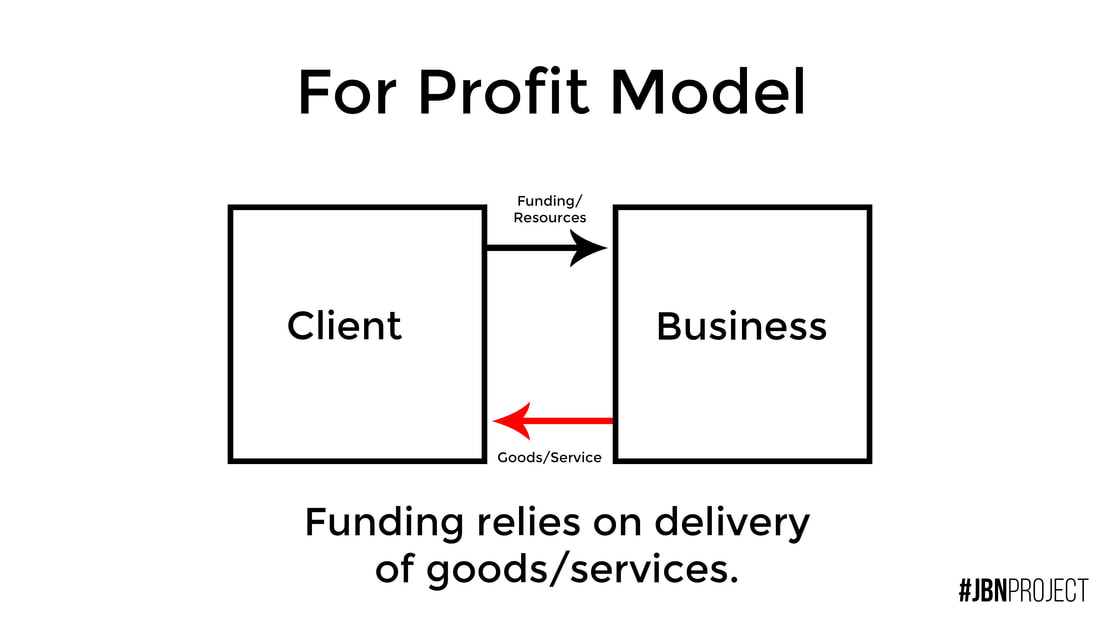
 RSS Feed
RSS Feed